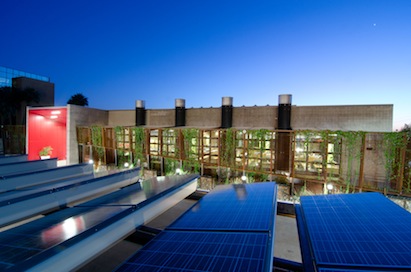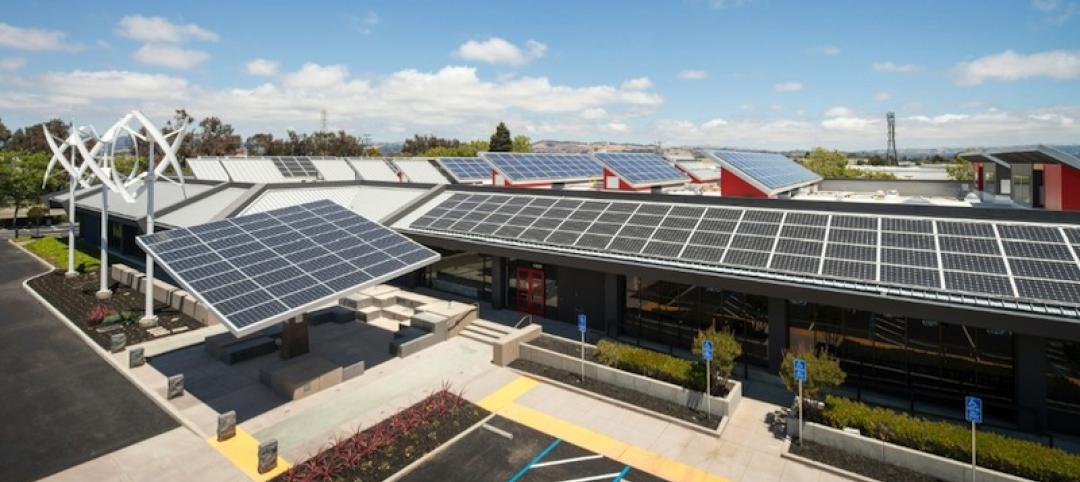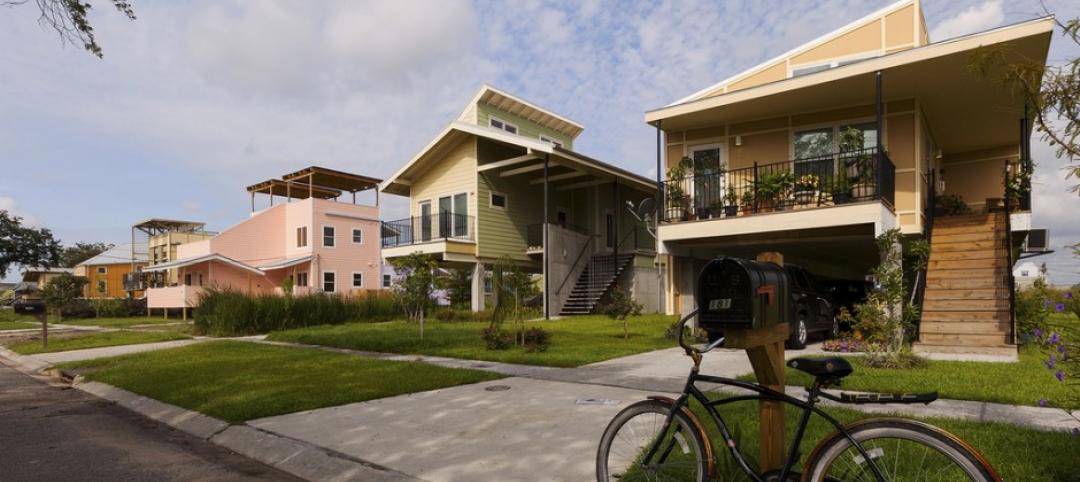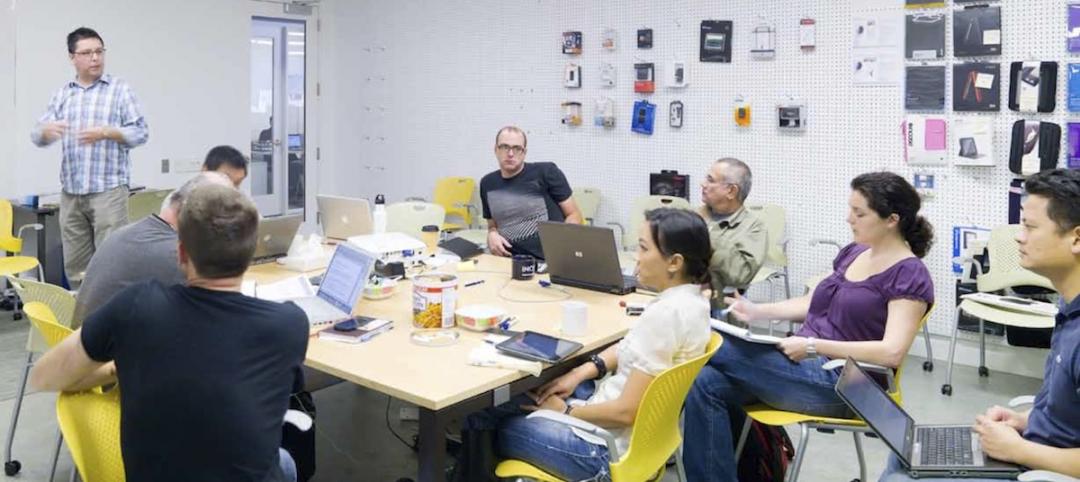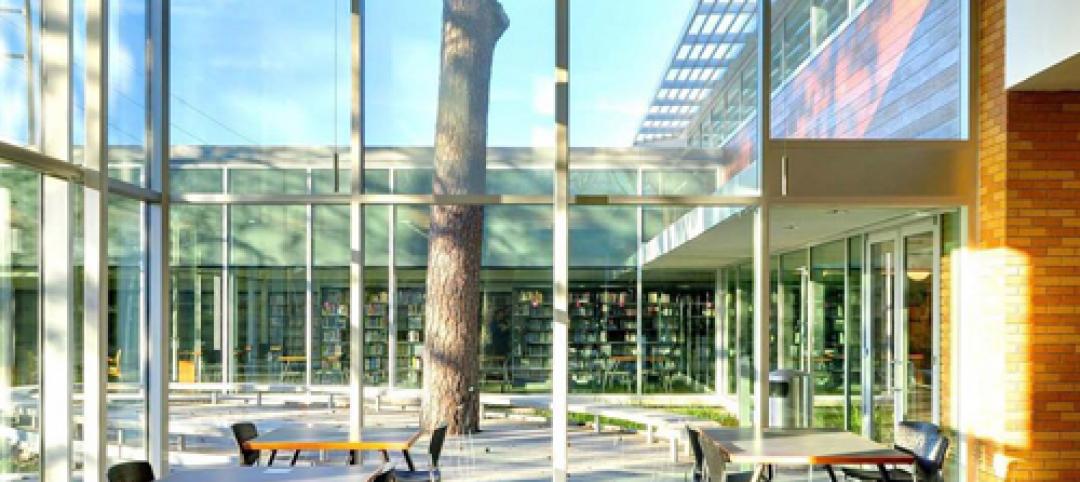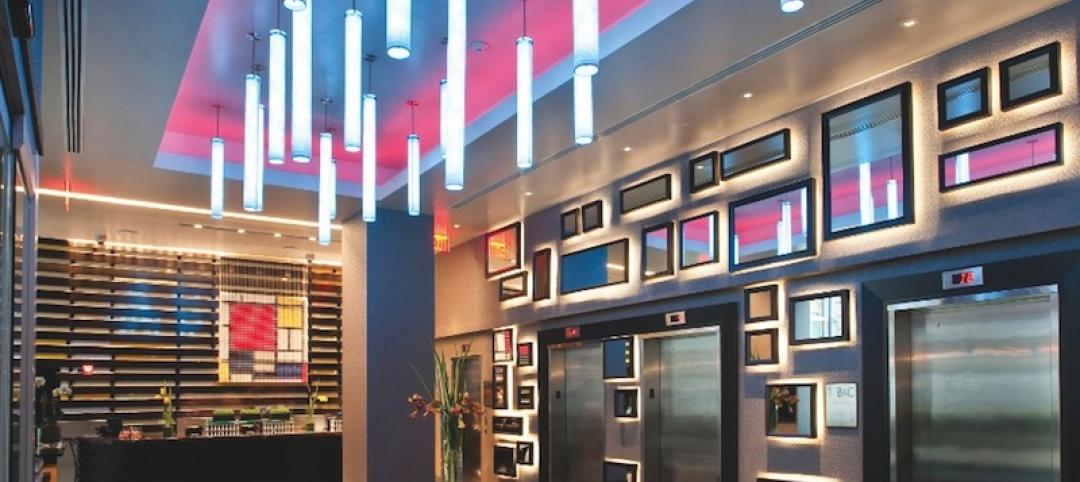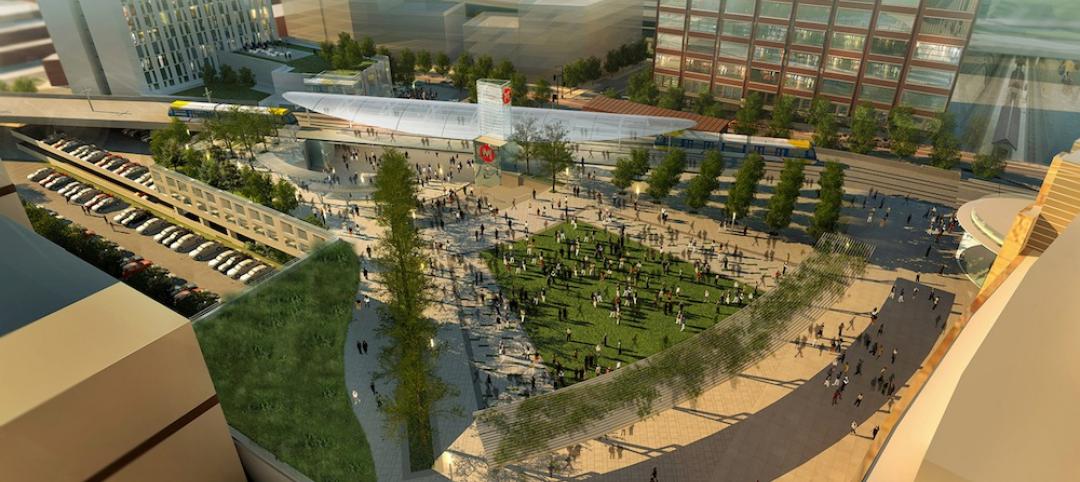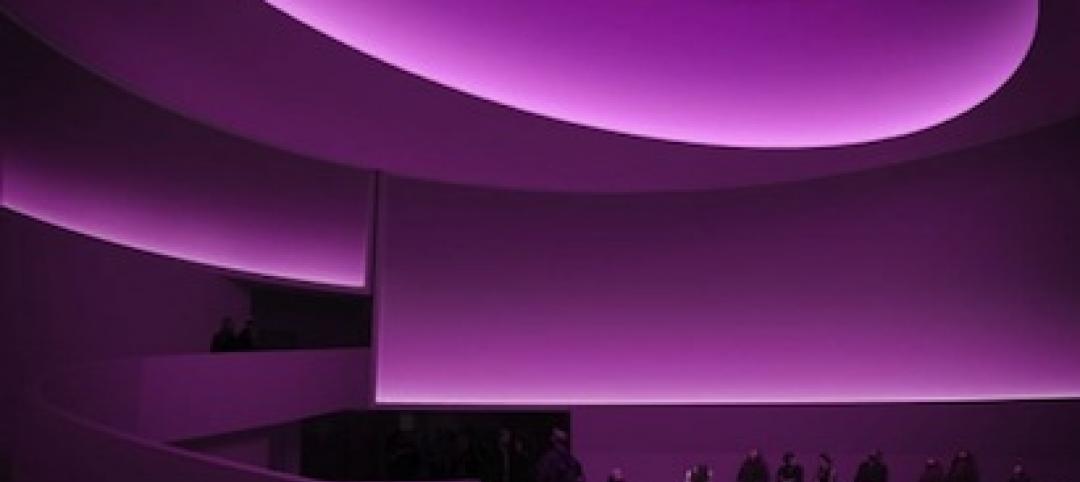Phoenix --The new Phoenix Regional Office of DPR Construction, designed by SmithGroupJJR, has been officially certified as a Net Zero Energy Building by the International Living Future Institute (ILFI). It’s the largest building in the world to achieve Net Zero Energy Building Certification through the Institute to date.
SmithGroupJJR designed the comprehensive renovation of the windowless, 1970s concrete block building, transitioning it into a model for sustainable adaptive reuse.
Located at the corner of 44th and Van Buren in a once declining area of Phoenix, the 16,533-square-foot storefront had most recently operated as an adult-themed boutique before standing vacant for three years. The eyesore building was purchased by DPR Construction, a national general contractor and construction manager, which was looking to build a highly-efficient, sustainable workplace and reaffirm its commitment to better the community in which it works.
Today, DPR’s new building is an ultra-energy efficient and modern workplace that’s embraced by its employees and the community.
“Many building owners may think it’s impossible to turn an aging, neglected building into something highly sustainable – especially in an extreme climate like Phoenix. But that’s precisely what we’ve achieved,” said Mark Roddy, AIA, LEED AP BD+C, SmithGroupJJR design principal. The entire project was completed in less than 10 months and is the first Net Zero Energy Building SmithGroupJJR has designed.
Net Zero Energy facilities integrate a combination of energy-producing technologies like solar and wind, and implement efficient HVAC and lighting systems to reduce a building’s overall energy usage. To achieve Net Zero Energy Building Certification, a facility must demonstrate a net energy consumption of zero over the span of one year.
SmithGroupJJR incorporated a range of advanced, sustainable design solutions to achieve Net Zero Energy consumption, such as:
— An 87-foot solar chimney enables a passive cooling system, releasing hot air out of the building while drawing cooler air in.
— Nearly 90 operable windows throughout the building work in tandem with the energy monitoring system to open and close based on indoor and outdoor temperatures.
— Eighty-two solar optical tubes, Solatubes harness light from rooftop domes and bring it into the workspace, nearly eliminating the need for artificial lighting.
— Twelve 8-foot diameter Big Ass Fans® circulate air flow throughout the office.
— A “vampire” switch cuts off 90 percent of plug loads, which would otherwise continue to draw power at night when the building is unoccupied.
— Four evaporative Shower Towers direct water-cooled air inside, also helping to regulate building temperatures.
— Producing power for the building is a 78.96 kW photovoltaic-covered canopy over half of the parking lot. The system is capable of generating enough power to offset the building’s annual energy usage and is critical to allowing the facility to achieve Net Zero energy consumption.
Tracking the building’s energy production and consumption in real time is an online building dashboard, prominently on display in the office’s reception area.
The new office building for DPR employees working in Phoenix is more than a sustainability powerhouse. Inside, SmithGroupJJR designed a “workplace of the future” environment, where employees share a common, open work environment void of enclosed, private offices. Unique, on-site amenities include a gym complete with men’s and women’s showers, a Zen Room for quiet breaks, and an 18-foot wine bar. A kitchen with café and two green-screened outside courtyards provide additional breakout venues. Video conferencing rooms, a learning lab, and a glass-walled Innovation Room with whiteboards and reconfigurable furniture encourage collaboration and teamwork. Rolling, glazed, garage-style doors can be raised to join the inside offices with an outside courtyard.
Since its completion in October 2011, the new DPR Phoenix Regional Office has become a living laboratory for the community, showcasing how to live and work sustainably in a desert environment. DPR has opened its building to host gatherings and meetings for a range of businesses and non-profit organizations. The company openly shares its building and the lessons that were learned during design and construction with audiences that include professional organizations, public and private programs, and school children of all ages.
DNV KEMA Energy and Sustainability served as sustainability consultant. Structural engineering was provided by PK Associates.
SmithGroupJJR (www.smithgroupjjr.com) is a recognized integrated design firm, ranked Top 10 in the U.S. by Architect, the magazine of the American Institute of Architects.A national leader in sustainabledesign, SmithGroupJJR has 351 LEED professionals and 88 LEED certified projects. SmithGroupJJR has four other buildings currently in design or under construction that aspire to be certified by the ILFI as Net Zero Energy Buildings.
Related Stories
| May 31, 2013
Nation's first retrofitted zero-energy building opens in California
The new training facility for IBEW/NECA is the first commercial building retrofit designed to meet the U.S. Department of Energy’s requirements for a net-zero energy building.
| May 30, 2013
The Make It Right squabble: ‘How many trees did you plant today?’
A debate has been raging in the blogosphere over the last few months about an article in The New Republic, “If You Build It, They Might Not Come,” in which staff writer Lydia DePillis took Brad Pitt’s Make It Right Foundation to task for botching its effort to revitalize the Lower Ninth Ward of New Orleans.
| May 30, 2013
5 tips for running a successful BIM coordination meeting
BIM modeling tools are great, but if you can't run efficient, productive coordination meetings, the Building Team will never realize the benefits of true BIM coordination. Here are some helpful tips for making the most of coordination meetings.
| May 29, 2013
Realtors report positive trends in commercial real estate market
Realtors who practice commercial real estate have reported an increase in annual gross income for the third year in a row, signaling the market is on the road to recovery.
| May 29, 2013
6 award-winning library projects
The Anacostia Neighborhood Library in Washington, D.C., and the renovation of Cass Gilbert’s grand Beaux-Arts library in St. Louis are among six projects to be named 2013 AIA/ALA Library Building Award winners.
| May 28, 2013
LED lighting's risks and rewards
LED lighting technology provides unique advantages, but it’s also important to understand its limitations for optimized application.
| May 28, 2013
Minneapolis transit hub will double as cultural center [slideshow]
The Building Team for the Interchange project in downtown Minneapolis is employing the principles of "open transit" design to create a station that is one part transit, one part cultural icon.
| May 24, 2013
James Turrell's art installation turns Guggenheim Museum into 'skyspace'
James Turrell, an artist whose projects are more properly defined as "light sculptures," will have a major installation at the Guggenheim Museum this summer, turning Frank Lloyd Wright's famed serpentine atrium into a show of shifting colors and textures. The site-specific project, Aten Reign, will run from June 21 to September 25.
| May 24, 2013
First look: Revised plan for Amazon's Seattle HQ and 'biodome'
NBBJ has released renderings of a revised plan for Amazon's new three-block headquarters in Seattle. The proposal would replace a previously approved six-story office building with a three-unit "biodome."


